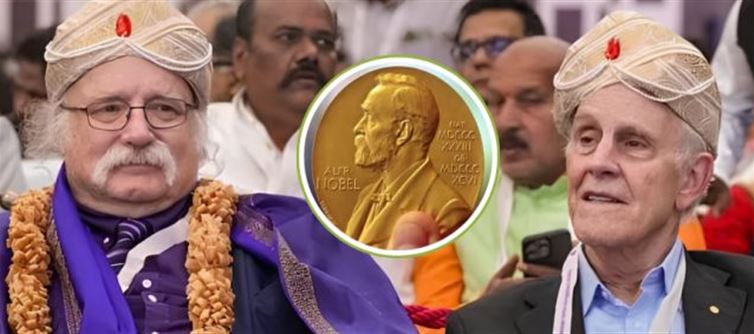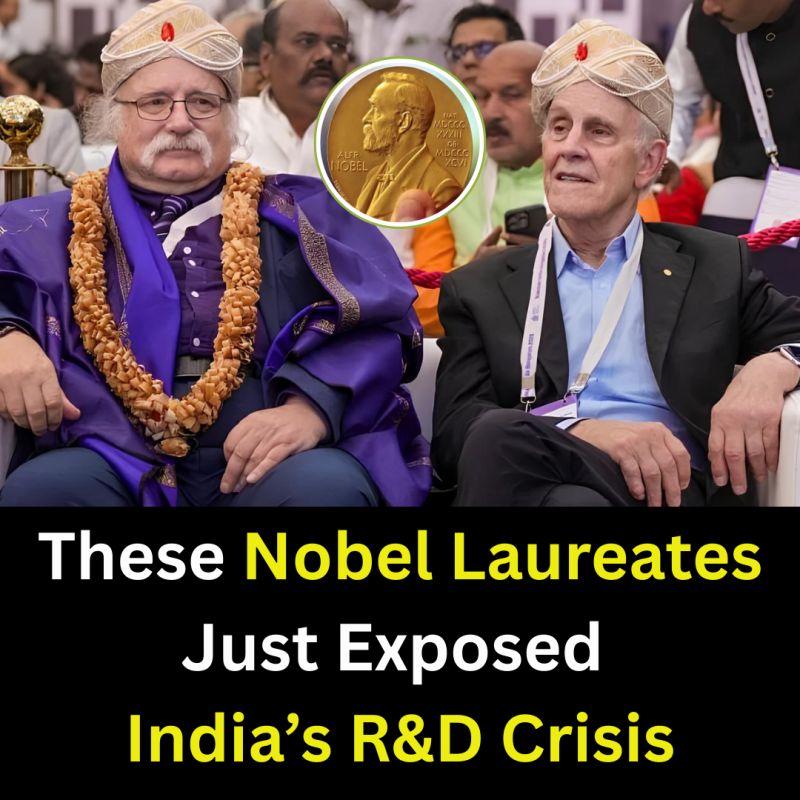
In 2004, Nobel Laureate David Gross warned India:
“You can’t just Make in India by borrowing science done elsewhere. To rise, you must first discover, then invent, and then make.”
Two decades later, his words sound like prophecy fulfilled. At the Quantum india Bengaluru 2025 event, Gross didn’t mince words. He accused india of falling farther behind in global science because we’re busy celebrating slogans instead of investing in research.
Let’s look at the numbers.
India’s R&D spending fell from 0.84% of GDP in 2009 to 0.64% in 2021. For an economy that wants to call itself the “next global power,” this is embarrassing. Worse, the brightest indian students Gross himself praises — the ones excelling in the U.S. — are leaving because our own ecosystem offers them little more than empty applause and political tokenism.
Another Nobel laureate, Duncan Haldane, backed Gross. But will our policymakers even listen? Or will they drown science once again in a sea of mythology debates, astrology fairs, and hollow “innovation challenges” with no follow-up?
The Real Crisis: No culture of Skills
Our problem is not only low funding. As Acharya Prashant has been hammering for years, india doesn’t lack money — it lacks a scientific culture.
In our schools, “science” means memorizing Newton’s laws for an exam, not experimenting with forces in real life.
In our homes, “inquiry” is often silenced with “Don’t ask too many questions.”
 And in our society, superstition and pseudoscience are rising faster than our literacy rate.
And in our society, superstition and pseudoscience are rising faster than our literacy rate.
We boast of “youth power,” but here’s the bitter truth: most students don’t even know what a skill is.
Can they design an experiment instead of copying it?
Can they debug code instead of mugging up syntax?
Can they apply knowledge to a real-world problem?
Can they reason beyond textbooks and resist blind belief?
These are skills. And they’re vanishing from our classrooms.
Why It Matters
A country that doesn’t train its youth in skills, research, and rational thought will never lead — it will only serve. It will remain a supplier of cheap labour and a consumer market for others’ inventions.
That’s not a path to leadership. That’s a path to dependency.
India doesn’t just need more IITs and AI labs with ribbon-cutting ceremonies. It needs:
Real funding for research, not token grants.
Mentors who reward inquiry, not rote.
A culture where science is not mocked, but celebrated.
Curricula that demand application, not repetition.
Until then, every “Make in India” will only be “Assemble in India.”
And the world will keep looking elsewhere for the real discoveries.




 click and follow Indiaherald WhatsApp channel
click and follow Indiaherald WhatsApp channel